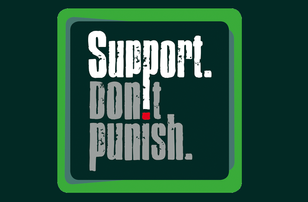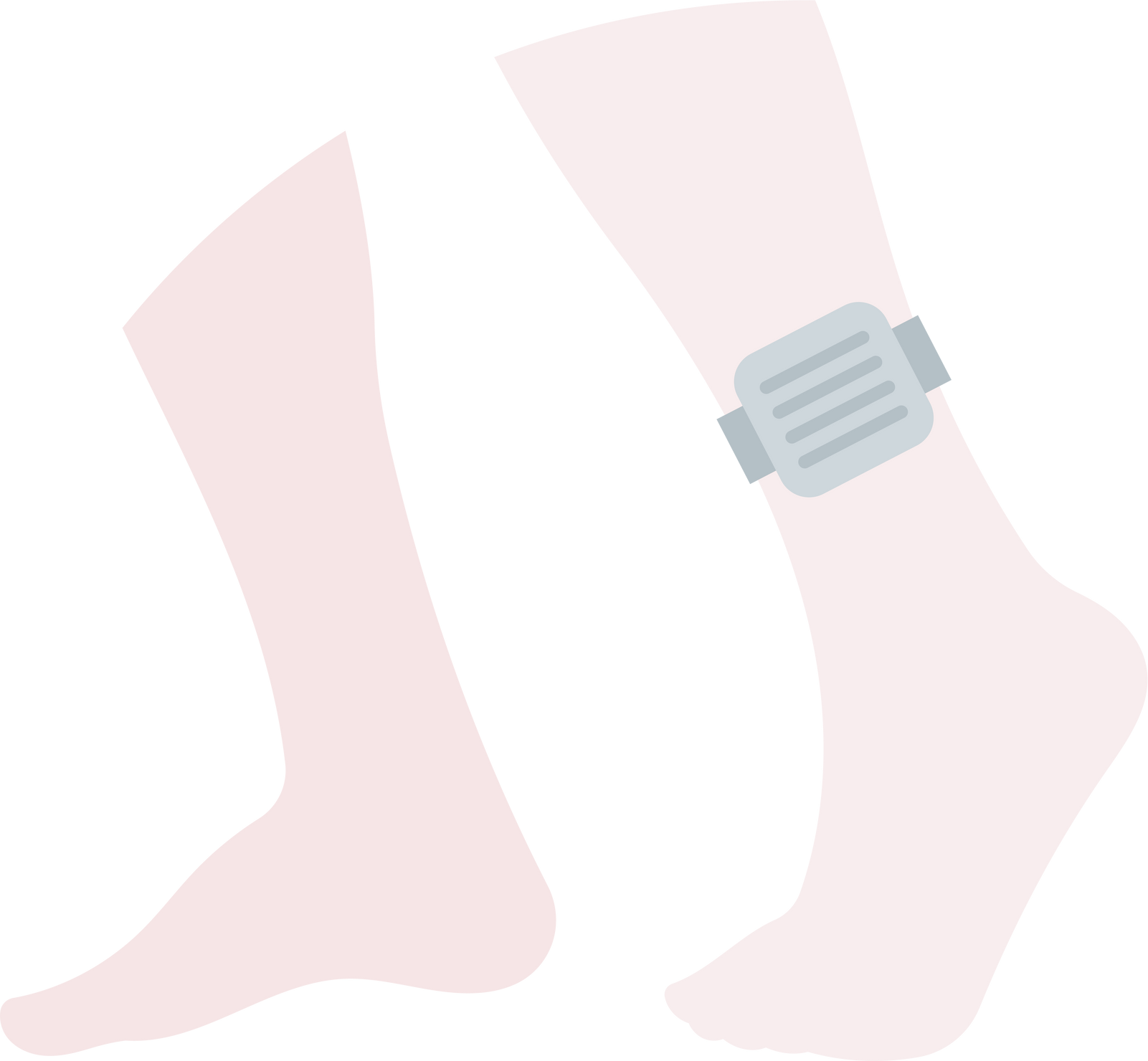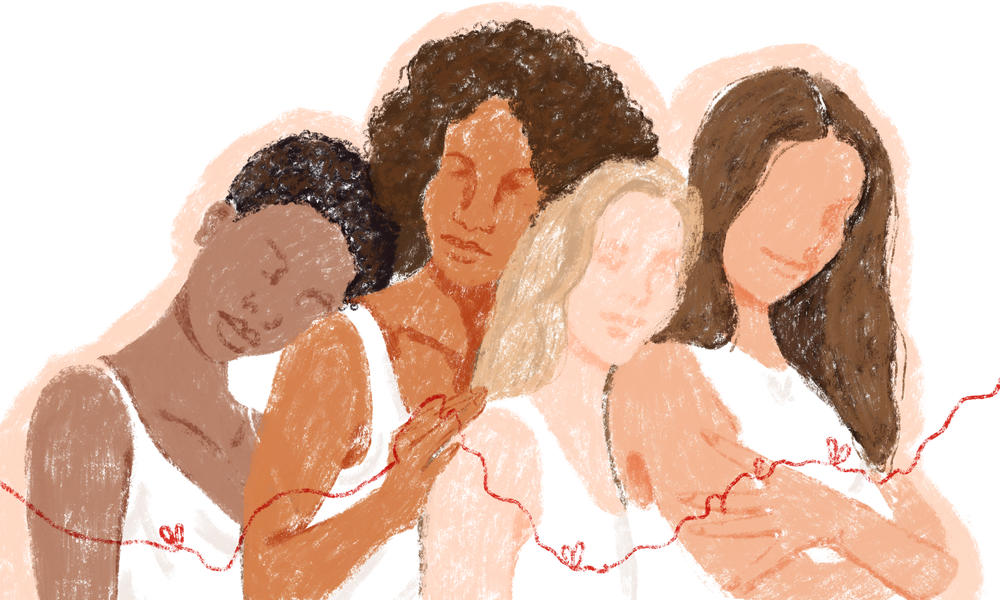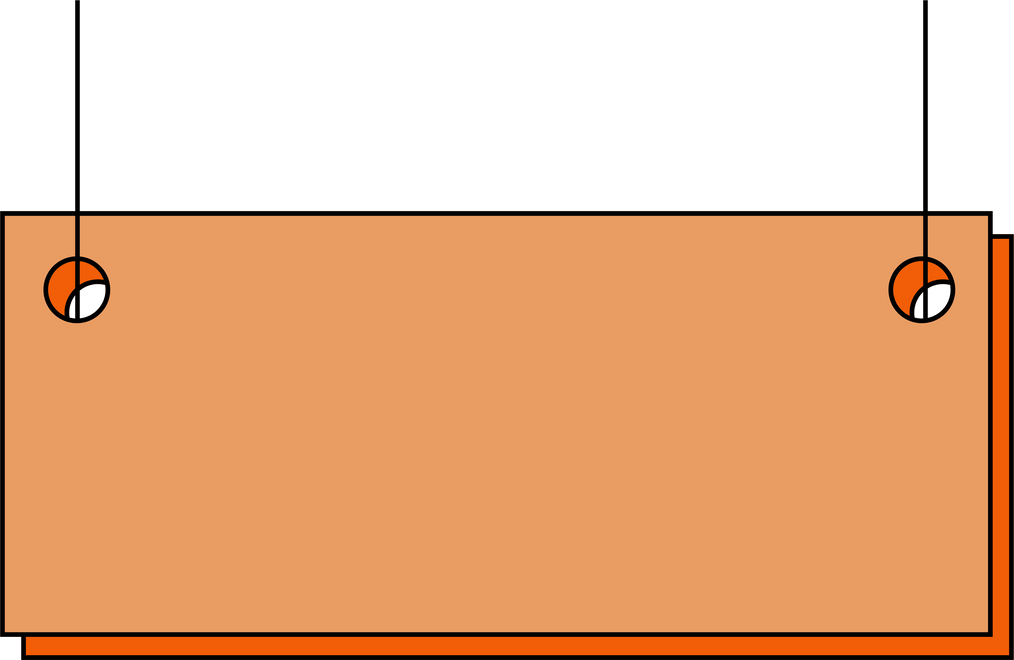

SUPPORT DON'T PUNISH
SINGAPORE GUIDEBOOK
KNOWING THE LAW
What can you be charged under?
The Misuse of Drugs Act (MDA) applies to both selling and using drugs. It bans: manufacturing, selling, having or using drugs, as well as bringing them in and out of the country.
Singapore citizens and permanent residents might be randomly tested to assess if they have used. Checks and raids might be held to check if someone owns, or is selling drugs.
There are three basic categories of offences:
POSSESSING:
A fine of $20,000 or
10 years in prison
USING:
Max. 10 years in prison,
a fine of $20,000 or
both.
If convicted:
Min. 5-7 years in prison,
+ 3-6 strokes of cane.
SELLING:
Imprisonment and
caning, or
Death Penalty*
*Death Penalty does not apply if:
- You were only transporting the drugs, and have no additional connections to the drug supply or distribution.
- The Public Prosecutor certifies that you helped Central Narcotics Bureau (CNB) to disrupt drug trafficking activities both inside and outside of Singapore (according to section 33B of the MDA)
- You demonstrate mental illnesses that make it difficult to take responsibility for your actions (also according to section 33B of the MDA)
In such cases, you may instead be sentenced to life imprisonment.
If the accused “substantially assisted” CNB, you will be caned up to 15 strokes.
IF YOU OWN ABOVE THE AMOUNTS LISTED,
SINGAPORE LAW PRESUMES YOU ARE SELLING:
Controlled Drug | Sentence for having | Presumed selling amounts | Death penalty or life imprisonment with minimum 15 strokes of the cane |
opium | 100 grams | 1,200 grams | |
morphine | 3 grams | 30 grams | |
diamorphine (heroin) | 2 grams | 15 grams | |
cannabis | Up to 10 years imprisonment or S$20,000 fine or both | 15 grams | 500 grams |
cannabis mixture | 30 grams | 1000 grams | |
cannabis resin | 10 grams | 200 grams | |
cocaine | 3 grams | 30 grams | |
hashish | 10 grams | 200 grams | |
methamphetamine | 25 grams | 250 grams | |
ketamine | 113 grams | NIL | |
10 grams (0.35 oz) of any or any combination of the following:N, α-dimethyl-3,4-(methylenedioxy)phenethylamine (MDMA)α-methyl-3,4-(methylenedioxy)phenethylamine (MDA)N-ethyl-α-methyl-3,4-(methylenedioxy)phenethylamine (MDEA) | |||
Historically, the law may be applied differently across cases. It is possible to have a more harsh or more lenient sentencing depending on the judgements and situations of each case. Overall, while it is good to know the law and your rights, one must be prepared that unexpected outcomes may still occur.
KNOWING THE PROCESS
Legal institutions and what to expect
#1: USING DRUGS (CONSUMPTION)
If officers suspect you of using drugs, they may require you to take a urine test.
If you test positive for drugs, you will likely be sent to a rehabilitation centre immediately.
If you’re over 21 years old or caught the second time, you may be sent to the Drug Rehabilitation Centre (DRC)
DRC 1 is for first timers, DRC 2 is for second timers, DRC 3 is for third timers.
For DRC 2, you may be sentenced to 8 months inside and 10 months home tagging.
If you’re under 21 years old, you’ll be sent to Community Rehabilitation Centre (CRC).
CRC and DRC don’t carry a prison record, and also don’t have a bail or court process.
HERE'S WHAT people who've been to DRC SHARED:
At the new DRC centre at Selarang Park, the front wall is a metal gate, where you can see the weather and other things outside. There’s a library and a day room, where you can watch pre-recorded terrestrial channels (e.g. Channel 5/Vasantham/Suria). There’s also an open yard, where you can play basketball and sepak takraw.
Each cell can have a maximum of 8 people, but the officers usually keep it at 6. You spend most of the time in the cell, and aren’t allowed to have much contact with the outside world - you can’t order food, make phone calls and such. You also can’t exercise in the cell, because you’re not allowed to and also there isn’t much space.
You can read books from the library, or books brought by your loved ones who visit you. They’re allowed to bring up to 3 general books and 3 religious books, on rotation.
DRC, LIKE MANY OTHER PRISON SYSTEMS, HAS A STRICT ROUTINE
The lights come on at 6am, and inmates shower in the bathrooms within each cell. There’s a modesty wall of about 1m, up to the waist, and the shower and toilet are behind that. Inmates put their laundry bag through the aperture (opening) in the door.
Around 7am, the Morning Master will do rounds and check on everyone in the cells. Breakfast is also served - typically 4 pieces of bread with jam or butter, and tea or coffee.
Some inmates (eg those in DRC 2/3/4) may do work within the DRC, and are referred to as ‘cookies’. They may serve food, collect laundry, assist the officers, set up, clean, and may earn about $5-7 per month.
Those who have classes may go for them after breakfast. Classes include sessions with a coucellor from a prison department or religious groups or support groups. For those considered ‘low risk’, they may go for classes for about 2 months, while those considered ‘high risk’ may go for classes for about 4 months. Those who don’t have classes may stay in their cells, or may go to the day room or yard.
It’s typically 2 days in the yard and 3 days in the day room, for an hour each time.
Lunch is around 12 o’clock, and the Afternoon Master comes round for checks. Inmates usually clean up and put their plates outside after lunch, then go for classes or nap.
Dinner is around 5pm, the Evening Master does rounds, cellmates shower and read or play games in the evening. Around 9pm, the lights are switched off. There’s usually no time outside the cell from Friday night to Monday morning, and these long hours locked up in the cell can be quite difficult.
Visits from loved ones may happen in the morning or afternoon, depending on the slot. It may be a 20-minute physical visit through a glass panel, or a 30-minute tele-visit. It’s maximum two visits per month, with up to 3 people each visit. After the physical visit, inmates will be strip searched and return to their cells.
It can be stressful to be continuously under surveillance and have to follow protocols. It feels like everyone is always looking, and there’s no privacy.
BE SMART ABOUT YOUR INTERACTIONS WITH PEOPLE
Most of your time will be with your cell mates and housing mates – people in the same day room/yard. You will speak to your counsellor in class, and your officers about communication with loved ones and e-visits. Officers will screen and approve the e-letters that people send you.
This is not a safe space – be careful about what you say, what problems you share, and who you share them with with. Check who has been in a gang.
Races usually clique together. Cells are mixed regardless of substance, though most people currently inside used meth.
Officers have a lot of power; it is not a bad idea to suck up to them. Many are just coming to do a job without any passion – don’t bully them.
It’s unclear what decides how your term is divided between being inside and outside
When you’re inside, the length of your sentence will depend on whether you are seen as “moderate risk” or “high risk”. It is unclear how this is decided, but there are some patterns: those in high-paying jobs are more often classed as “moderate risk”, with shorter sentences inside. For example, 2 associate professors only did 2 months inside. One way to think about this is how the system thinks you “contribute to society”.
Those above 40 also appear to have shorter sentences inside.
There is no bail process, and people are unclear how sentences are reduced. Most didn’t have lawyers.
#2: HAVING DRUGS
(POSSESSION AND TRAFFICKING)
You could get charged even if you do not directly own a drug.
You could get charged if you have:
- Something containing a drug
- The keys to something that has drugs
- The keys to a place that has drugs
- Paper proof that you have a drug, or delivered it
Anyone who agrees to or knows about this can also get charged for having the drug.
Your responses at the police station are included in the evidence.
You will be charged until you can prove that you didn’t know about it. For example, if someone left some drugs in your house after a party, you could get charged for having it until you can prove that you had no idea.
In the law, the police is allowed to enter any place without a search warrant to check for drugs. They are also allowed to use force and handcuffs, and to search you. The law states: “whenever…a woman is to be searched, it must be done by an officer who is a woman”.
You have the right to ask for the ID of the police, and why you are being arrested.
When you arrive at the police station, you are allowed to consult a lawyer and contact your family. However, you might be denied if the police think it will affect their investigation. You will usually be detained for 48 hours, though the police may sometimes apply to extend this.
You might be asked to make a “witness statement” or a “notice statement”. Interviews can happen any time of the day, from Monday to Sunday.
A “notice statement” happens when the police want to accuse you of being guilty. They will tell you what they are accusing you of. You have the right to remain silent instead of making a notice statement, but the police might later say that you were silent because you are guilty.
If you are between 7 to 17 years old, an adult volunteer will be there to help you during your interviews. They are supposed to be a neutral third party to help you communicate better with the investigation officer (IO) interviewing you. They are also trained as counsellors and mentors.
POST-RELEASE
Life, support and other things to consider
career
Build networks and connection through communities of ex and current users. If you get a job in a company with fellow ex-users, these connections could continue to help in recovery. There are many word-of-mouth options, where you can lean for support. Don't be afraid to make connections.
Disclosure
In a setting where you don't have to self-disclose, it's likely that people will be acceptive. Some workplaces try to make job interviews as non-discriminatory as possible, but it's still a work in progress.
Many companies still ask if you've been convicted. If you're asked to disclose, it's best to be transparent and upfront. If the company finds out and dismisses you, it could be a trigger for relapse. It could also affect your financial stability and obligations, and could even drive you to sell substances to supplement income.

sAMPLE SCHEDULE: HOME TAGGING
Someone we spoke to underwent 10 months of home-tagging. They could only go out from 12-3pm if they were not working. If they were, they could only be outside of the house 2 hours before and after work. They had a weekly urine test until they finished their sentence.
Some Reintegration Officers (ROs) are stricter than others, so their response may not be the same. You can ask permission to extend the time you spend outside of the house. If you do not follow the hours, you will be sent back to DRC – some ROs will give you the chance to explain.
CISCO monitors the tagging. If you do not follow the hours, they will inform the RO, who will follow up with you.
as long as you have a record, cnb may check on you for the rest of your life
While you are still in DRC (whether inside or outside), you are under your RO. Once your DRC term has ended, you are under CNB.
CNB’s formal supervision lasts 5 years. In the first 2 years, you will hve to do urine tests once or twice a week at the CNB police station. If you do not go, they will test your hair.
In the final 3 years, they can do surprise tests of either urine or hair. In this time, you will have to let them know if you want to go on a holiday (and will be overseas), or are changing jobs.
After this time, people we spoke to found that CNB does continue to do surprise tests. Some expect these surprise tests will continue for the rest of their lives.
If you test positive, you will be returned to DRC. (Most “repeat offenders” in DRC 2 and DRC 3 come from these tests.)
If you don’t show up, you need to show an MC. If you don’t have an MC, you will be charged straight away.
SUPPORT NETWORKS
Where to go and what to expect
You may benefit from medical, phsychological and social support if you need assistance managing your substance use. If you are just off substances and require some support to help deal with physical or psychological withdrawal, support groups may be useful.
If you are awaiting sentencing, these support services could also help. Engaging with these services may also indicate your intent of recovery. Lawyers or legal representations may advise communicating your intent to recover through seeking out formal support services.
You may consider approaching either private clinics, community-based organisations or public healthcare institutions for assistance. Reach out to us for other support services too!
"Singapore's system isn't rehabilitative, it's punitive. No rehab happens in prison."
Based on anecdotal evidence from those who have experienced the prison system, there is a general consensus that Singapore’s system is not rehabilitative, rather it is punitive. Those held by the prison system have degrading conditions - strip searching, anal checks, physical abuse from the officers. There is limited or no access to medical care, all the more so after caning or being hit by prison officers. Solitary confinement also enacts psychological hardships, resulting in effects on mental health.
Such a punitive system, intended to dissuade and frighten people from being involved in drugs, could instead lead to resentment.
Though prison and authorities purport to help, they’re predominantly about KPIs. Don’t rely too heavily on prison and institutionalised systems for support.
"We don't need to proclaim who we are before we're in a circle. A label shouldn't precede a person."
There are welcoming communities, like NGOs formed by ex-offenders. People who have been clean for years, and who can relate to each other and provide support, organise activities. There will always be support networks available when you need. Even if you may not know about them, your chosen family will help you along in the journey.
"If you are shunned from mainstream society, and feel like you have no other way, you can fit in. There are other communities that will welcome you"
SELF-MANAGEMENT
Practical tips from peers
support from loved ones
Depending on where you are in your journey and/or where you want to be, you may have different needs. It's beneficial to recognise that you need support and it’s ok to need it. 'Self-regulate' may be a utopian concept.
Many have shared anecdotes of outsmarting family and loved ones, giving excuses to sneak substances (e.g. claiming to go out to get groceries). Let yourself be truthful and honest to your loved ones.
different needs at different points
When in 'survival mode', financial help and help to navigate the digital world could be useful. working long hours may prevent time to go for support groups, and things could spiral from there. it isn't just about support with navigating substance use - other support such as financial support, which allows time to go for support groups and therapy, could help. some have found the counselling services provided by Wecare especially helpful.

“It’s good to have support throughout the journey, it takes a while before you can climb out of the ‘danger zone. At times when you’re using, what you need at that point is the people who care for you, family and friends. At other times, in recovery process, people who will see you for who you are, as a whole person, not just a user. After being more stable and with prolonged maintenance, anything can trigger you. When you’re trying to stop using, what you need is structures to put in the discipline that helps you to have continuity in life”
"When coming out of addiction, I can see how we live for something or someone - loved ones who mean a lot to us. Do it for yourself and for the people who are important in your life".

Self-identity
Being in addiction could result in losing confidence and hope. Aspirations, jobs, career paths, partners, family may feel unmanageable in addiction. Recovery /regulation could result in feeling positive and hopeful, and wanting to try new things.
dealing with social connections

“I used to go to NA meetings, and when I’m on the way back home I relapse – just the train journey. I think: Today, when I go back, it will be empty”.
Some have found it useful to cut themselves off from previous circles of friends that they used to use drugs with. some have found urine testing centres to be hotbeds for dealers. If you are trying to avoid opportunities for use, this is something to take note of.
Support from ex and non-users is possible through peer recovery groups. sometimes talking about things related to life in general such as jobs etc. can be helpful, not having conversations only focused on substance use. Given harsh laws, one may get paranoid about getting caught. An ex/non-user may be able to help calm them down and assure them. Some share the importance of being “surrounded by positivity”, because the feeling of isolation/loneliness created by removing the substance can get overwhelming.
discipline
“My uncle padlocked me in my house, taking everything away except my tobacco, cereal and milk. Everyone disappeared from the house; at night my uncle would come to open the door, reassure me, and then leave. I was locked up and it was the best thing for me at the time. he understood what i needed."
Routines learned in DRC/prison have continued to be used outside of prison. However, self-discipline doesn't have to happen only in the prison system. While the structuring may be beneficial, know that you can have access to that without needing the punishment that comes with prisoning disciplinary structures.
Some have avoided anything which intoxicates them, including alcohol, whether or not this was recommended by the programme they were in.
your role
As you successfully progress in your journey and when you're in the stage of surviving and thriving, pay it forward for someone else who's walking the same journey: holistic rehab. Help fellow ex-prisoners who don't know where to go for help and support. Help them get acquainted with CPF, Singpass, bank accounts, digital developments, social media, and anything else they need and you can contribute to.
CONTRIBUTE TO
THE PROJECT
We're still in the process of building this resource: adding experiences from RTC & CRC, compiling alternative resources for recovery users have found helpful, etc. Help us speed up this process!
Could we have represented something better? Was your experience different from that of the people we spoke to, or do you have more to add? We'd love to hear your side of things -- help us improve this community resource!
We're also looking to translate this resource into languages that would be useful. Again, we expect this to take time, but you could help us make it happen more quickly.